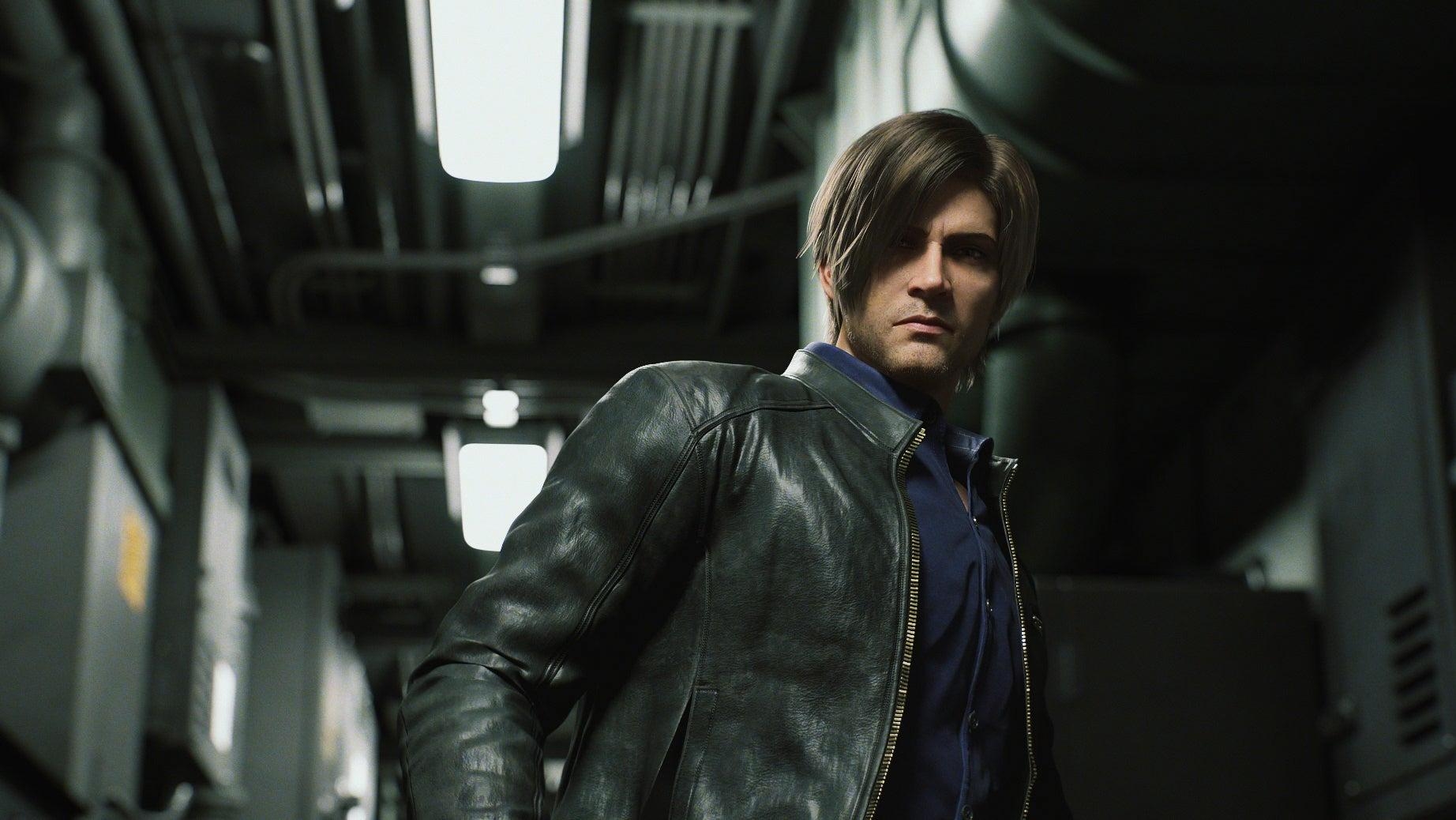Resident Evil: Infinite Darkness would’ve been a bad video game, but it’s a fine TV show
The show is a throwback to the days when Resident Evil was defined by crummy games and worse movies

At the end of the 2000s and at the turn of the 2010s, the Resident Evil multimedia franchise was in a weird spot. Resident Evil 4 had been a huge success for the video games, transitioning from the stiff, spooky horror of the PlayStation era to something bigger and more action-focused (if slightly less spooky). But the critical reception of Resident Evil 5, an attempt to just do more of the same, has only fallen further as time goes by, at least partially because of the fact that it’s about a white guy going into Africa to kill predominantly Black zombies. Meanwhile, a falling critical reception couldn’t even remotely hold back Paul W.S. Anderson’s Resident Evil movie series, which was going as strong as ever when Resident Evil 5 came out.
When it came time to make Resident Evil 6, the developers at Capcom followed what was working for a full-on, globe-spanning apocalypse adventure that was a lot like the movies, meaning any plot it had was just an excuse to throw practically invincible professional zombie slayers together without even the faintest hint of horror. The movies decided pretty much immediately that it was a lot of fun to watch a woman effortlessly kill monsters, whether she had explicit superpowers or not, and when the people making the games saw how well that was going, money-wise, they conceded that it did seem like it would be a lot of fun. Resident Evil 6, perhaps unsurprisingly, is terrible. Or at least boring, which might be even worse for a game that is basically all about cool zombie set pieces.
Apologies for the history lesson, but that brings us to Resident Evil: Infinite Darkness, Netflix’s new computer-animated Resident Evil limited series. Infinite Darkness explicitly takes place just before the events of Resident Evil 5, right before the games start to get bad, which makes it a fascinating time capsule to an era of Resident Evil that is long gone. With 7 and the recently released Village, the games have moved away from bombastic action to more effectively unnerving first-person horror, while the movie series is getting a 1990s-set reboot that director Johannes Roberts says will be closer to the John Carpenter-esque tone of the original games.
With so much working against it, it would be easy to assume that Resident Evil: Infinite Darkness is also bad, seeing as how it’s a throwback to an era that nobody wants to remember, and yet… it’s not. Nobody is going to confuse it for high art, certainly, but what didn’t really work in video games and what didn’t make sense in the Milla Jovovich-led movies surprisingly does work as a CG four-episode TV show. Infinite Darkness has room to get through a somewhat complicated plot involving multiple government conspiracies, biological terrorism, and a war in a Middle Eastern country, but it also doesn’t wear out its welcome by leaning too hard on the diminishing returns of bigger and grosser zombie monsters.
The show doesn’t assume you have any prior knowledge of the Resident Evil lore, but it also doesn’t really require any. All you need to know is that zombie viruses are an established thing in this world, there’s a woman named Claire Redfield who survived a few zombie adventures (her brother Chris and series villain Albert Wesker go unmentioned, though) and is friends with a guy named Leon S. Kennedy who used to be a cop, also survived multiple zombie adventures, and is forever in the president’s good graces because he saved his daughter. The specific plot beats are all kind of predictable, especially if you have any familiarity with zombie tropes (and the tropes of this Resident Evil era, like someone getting a rocket launcher just for the final boss fight), but the plot walks a nice line between not being distractingly meaningless and not being distractingly convoluted, allowing you to just recognize the main beats and go from cool moment to cool moment—of which there are actually quite a few.
One early sequence is practically lifted right from Resident Evil 6 (a zombie attack on the White House), but it’s played much better here, so to speak, because the TV show makes the wise choice of pitching it all in complete darkness. Recognizable White House rooms are lit by fleeting flashlight glimpses, and when the zombie shit hits the fan, flashes of gunfire serve are the only lighting in the carnage. It’s cool! Later, there’s a scene in a submarine that would probably be too tight and constrained for a video game, but it’s a great setting for a zombie story that at least hasn’t been done to death.
Infinite Darkness isn’t the ultimate expression of what Resident Evil could or should be, which kind of raises the “Who is this for?” question that hangs over all video game adaptations and tie-ins. However, rather than giving video game fans what they want or ignoring video game fans and just doing what Paul W.S. Anderson wants, it seems like the team behind Infinite Darkness just disregarded everybody and found some room in the Resident Evil canon where they could tell a story about government conspiracies and zombie-related PTSD and lovable pretty boy Leon Kennedy. It’s not a crucial part of the ongoing storyline, since the games are doing a totally different thing now, and it’s not going to establish any useful context for the future of the movies. But freeing itself from those expectations has resulted in a TV show that, while far from a masterpiece, exceeds most expectations of a video game adaptation.